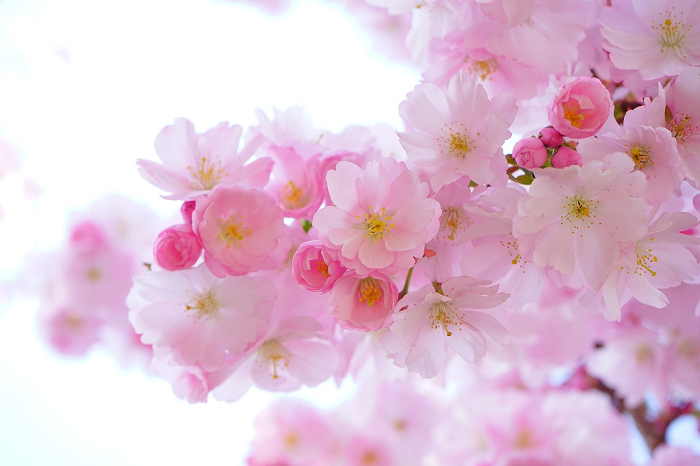IKIGAI : The art of living
What is your reason for being?
According to the Japanese, everyone has an ikigai. Some people found there ikigai, while others are still looking, through they carry it within them.
Our ikigai is hidden deep inside each of use, and finding it requires a patient search. According to those born on Okinawa(the island with the centenarians in the world) our ikigai is the reason we get up in the morning.
Epilogue from the book:
Mitsuo Aida was one of the most important calligraphers and haikuists of the twentieth century. He is yet another example of a Japanese person who dedicated his life to a very specific ikigai: communicating emotions with seventeen-syllable poems, using a shodo calligraphy brush.
Many of Aida's haikus philosophize about the importance of the present moment, and the passage of time. The poem reproduced below could be translated as "In the here and now, the only thing in my life is your life".
いまここにしかないわたし
のいのちあなたのいのち
In another poem, Aida writes simply simply, "Here, now". It is an artwork that seeks to evoke feelings of mono no aware (a melancholy appreciation of the ephemeral).
いまここ
The following poem touches on one of the secrets of bringing ikigai into our lives: "Happiness is always determined your heart".
しあわせはいつも自分の心がきめる
This last one, also by aida, means "Keep going; don't change your path".
そのままでいいがな
Once you discover your ikigai, pursuing it and nurturing it every day will bring meaning to your life. The moment your life has this purpose, you will achieve a happy state of flow in all you do, like the calligrapher at his canvas or the chef who, after half a century, still preparing sushi for his patrons with love.
Conclusion
Our ikigai is different for all of us, but one thing we have in common is that we are all searching for meaning. Where we spend our days feeling connected to what meaningful to us, we live more fully; when we lose the connection, we feel despair.
Modern life estranges us more and more from our true nature, making it very easy for us to lead lives lacking in meaning. Powerful forces and incentives (money, power, attention, success) distract us on a daily basis; don't let them take over your life.
Our intuition and curiosity are very powerful internal compasses to help us connect with our ikigai. Follow those things you enjoy, and get away from or change those you dis like. Be led by your curiosity, and keep busy by doing things that fill you with meaning and happiness. It doesn't need to be a big thing: we might find meaning in being good parents or in helping our neighbors.
There is no perfect strategy to connecting with our ikigai. But what we learned from the Okinawans is that we should not worry too much about finding it.
Life is not a problem to be solved. Just remember to have something that keeps you busy doing what you love while being surrounded by the people who love you.
The ten rules of ikigai
We'll conclude this journey with ten rules we've distilled from the wisdom of the long-living residents of Ogimi:
1. Stay active; don't retire. Those who give the things they love doing and do well lose their purpose in life. That's why it's so important to keep doing things of value, making progress, bringing beauty or utility to others, helping out, and shaping the world around you, even after your "official" professional activity has ended.
2. Take it slow. Being in a hurry is inversely proportional to quality of life. As the old saying goes, "Walk slowly and you'll go far." When we leave urgency behind, life and time take on new meaning.
3. Don't fill your stomach. Less is more when it comes to eating for long life, too. According to the 80 percent rule, in order to stay healthier longer, we should eat a little less than our hunger demands instead of stuffing ourselves.
4. Surround yourself with good friends. Friends are the best medicine, there for confiding worries over a good chat, sharing stories that brighten your day, getting advice, having fun, dreaming... in other words, living.
5. Get in shape for your next birthday. Water moves; it is at its best when it flows fresh and doesn't stagnate. The body you move through life in needs a bit of daily mainte nance to keep it running for a long time. Plus, exercise releases hormones that make us feel happy.
6. Smile. A cheerful attitude is not only relaxing-it also helps make friends. It's good to recognize the things that aren't so great, but we should never forget what a privilege it is to be in the here and now in a world so full of possibilities.
7. Reconnect with nature. Though most people live in cities these days, human beings are made to be part of the natural world. We should return' to it often to recharge our batteries.
8. Give thanks. To your ancestors, to nature, which pro vides you with the air you breathe and the food you eat, to your friends and family, to everything that brightens your days and makes you feel lucky to be alive. Spend a moment every day giving thanks, and you'll watch your stockpile of happiness grow.
9. Live in the moment. Stop regretting the past and fearing the future. Today is all you have. Make the most of it. Make it worth remembering.
10. Follow your ikigai. There is a passion inside you, a unique talent that gives meaning to your days and drives you to share the best of yourself until the very end. If you don't know what your ikigai is yet, as Viktor Frankl says, your mission is to discover it.
Thanks for taking your time and reading this and Happy new year, have a great year💖.





0 Comments